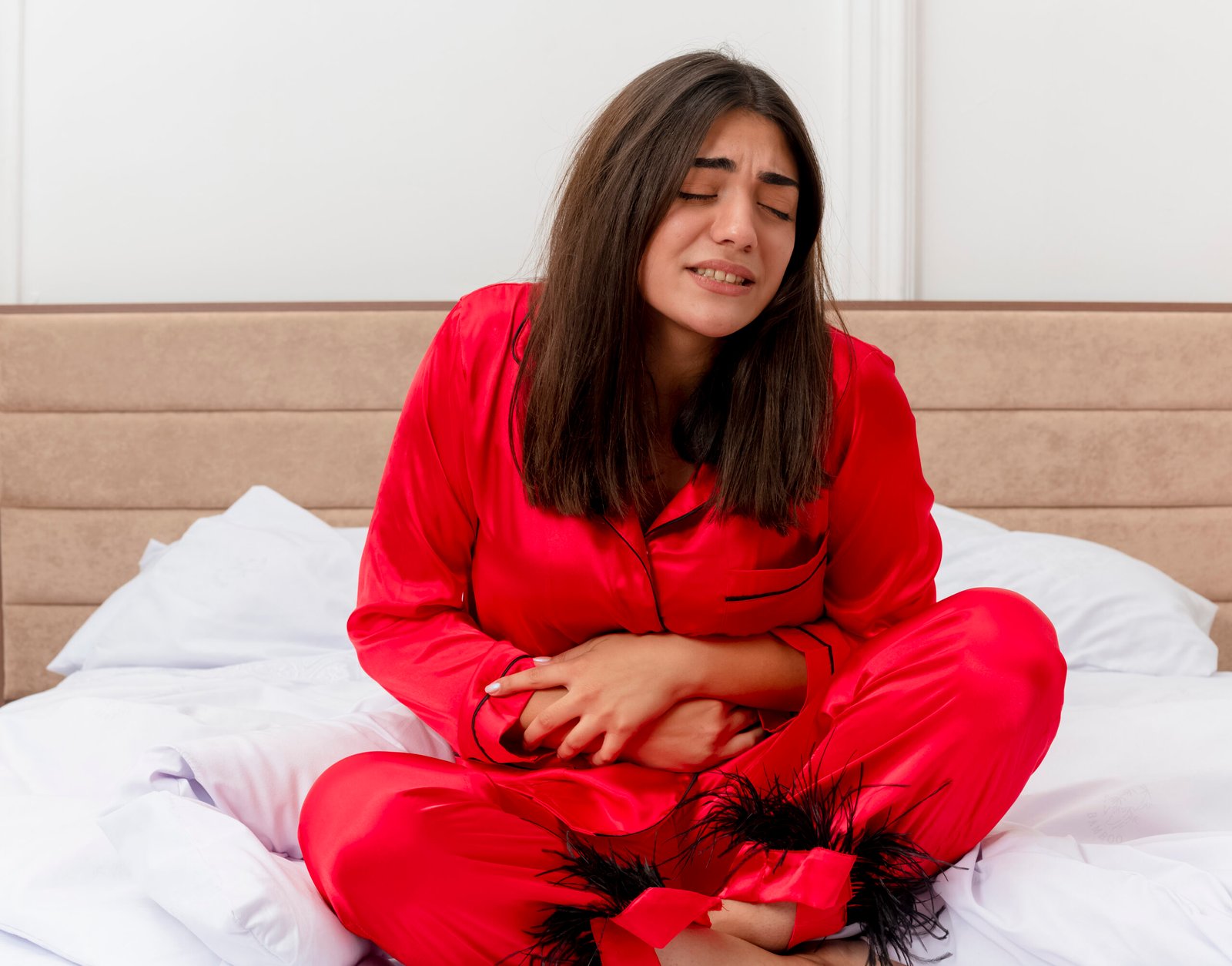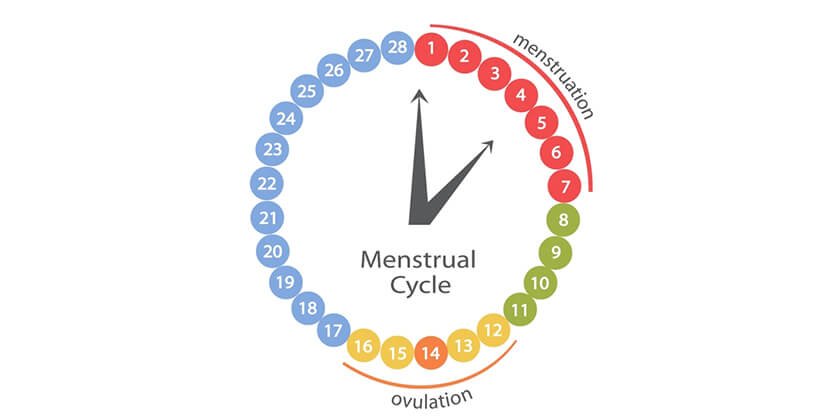
How to Properly Dispose of Used Sanitary Pads
August 2, 2024
Dealing with Menstrual Cramps: Effective Remedies and Relief Options
August 5, 2024How to help your daughter manage her period pain? A mother’s guide
Being a mother comes with a myriad of responsibilities, and one of the most important is guiding your daughter through the milestones of womanhood. One significant milestone is her menstrual cycle. For many girls, periods are accompanied by pain and discomfort that can be challenging to manage. As mothers, it’s our job to support our daughters through this experience with empathy, practical advice, and effective strategies. So we have put together a comprehensive guide on how to help your daughter manage her period pain, written by one mother for another.

Understanding period pain
Menstrual pain, also known as dysmenorrhea, is a common issue that affects many young girls. The pain can range from mild to severe and can be accompanied by other symptoms such as nausea, headaches, and fatigue. Understanding the causes and types of period pain can help you provide the right support.
- Primary dysmenorrhea: This type of pain is caused by uterine contractions and usually begins a day or two before menstruation starts. It’s common among teenagers and young women.
- Secondary dysmenorrhea: This type of pain is often related to underlying reproductive health issues such as endometriosis or fibroids and tends to occur later in life.

Creating a positive experience
Creating a supportive and positive environment for your daughter during her periods can make a significant difference in how she perceives and manages the pain. Here are some strategies:
- Open communication: Encourage your daughter to talk about her menstrual pain and how it affects her. Listen to her concerns without judgment and validate her feelings. Open communication helps in understanding her needs and providing appropriate support.
- Education: Educate your daughter about the menstrual cycle and why period pain occurs. Knowledge can empower her to manage her symptoms better. Use age-appropriate language and resources to explain the biological processes involved.
- Emotional support: Offer emotional support and reassurance. Let her know that period pain is a common experience and that she is not alone. Share your own experiences and coping strategies to make her feel understood and less isolated.

Practical remedies and relief options
Helping your daughter find effective remedies for period pain is crucial. Here are some tried-and-tested methods that can provide relief:
- Over-the-counter pain relievers: Medications like ibuprofen or acetaminophen can help reduce menstrual cramps. Consult your doctor for the appropriate dosage and ensure your daughter takes them as directed.
- Heat therapy: Applying a heating pad or hot water bottle to the lower abdomen can help relax the uterine muscles and reduce pain. Heat patches are also a convenient option for on-the-go relief.
- Hydration and nutrition: Encourage your daughter to stay hydrated and maintain a balanced diet. Foods rich in vitamins and minerals, such as leafy greens, fruits, and nuts, can help alleviate symptoms. Limit caffeine and salty foods, as they can exacerbate bloating and discomfort.
- Exercise: Gentle physical activities like walking, yoga, or stretching can help reduce menstrual pain by increasing blood flow and releasing endorphins. Encourage your daughter to stay active during her period, even if she doesn’t feel like it.
- Relaxation techniques: Teach your daughter relaxation techniques such as deep breathing exercises, meditation, or guided imagery. These methods can help manage pain by reducing stress and promoting relaxation.

Encouraging healthy habits
Developing healthy habits can significantly impact how your daughter experiences her periods. Here are some tips to encourage a healthier lifestyle:
- Regular exercise: Encourage regular physical activity as it can help regulate menstrual cycles and reduce the severity of cramps over time. Find activities she enjoys to make it a fun and sustainable habit.
- Balanced diet: Promote a diet rich in whole foods, including plenty of fruits, vegetables, lean proteins, and whole grains. This can help balance hormones and reduce inflammation, leading to less painful periods.
- Sleep hygiene: Ensure your daughter gets adequate sleep, as fatigue can worsen period symptoms. Establish a regular sleep routine and create a relaxing bedtime environment.
- Stress management: Help your daughter develop effective stress management techniques. Chronic stress can exacerbate period pain, so practices like mindfulness, journaling, or hobbies can be beneficial.

When to seek medical advice?
While most period pain can be managed with home remedies and lifestyle changes, it’s essential to know when to seek medical advice. Consult a healthcare professional if:
- Severe Pain: If your daughter’s pain is severe and unmanageable with over-the-counter remedies, it’s crucial to seek medical advice. Severe pain could indicate underlying health issues.
- Irregular Periods: If her periods are very irregular or if she experiences significant changes in her menstrual cycle, consult a doctor to rule out any underlying conditions.
- Other Symptoms: If she experiences symptoms such as heavy bleeding, unusual discharge, or pain outside of her menstrual cycle, a medical consultation is necessary.

Celebratory rituals or gifts
Making your daughter’s first period a memorable and positive experience can set the tone for how she views her menstrual health. Here are some ideas:
- Period Kit: Create a personalized period kit for your daughter, including sanitary pads, heating pads, pain relievers, and her favorite snacks. Add a comforting note or book about menstruation to make her feel special.
- Mother-Daughter Day: Plan a special day out with activities she loves. Use this time to bond and discuss her feelings about menstruation in a relaxed setting.
- Jewelry or Token: Consider giving her a piece of jewelry or a small token to commemorate her transition into womanhood. This gesture can help her feel valued and celebrated.

Educating About Menstrual Health
Empower your daughter with knowledge about menstrual health. Here are some educational tips:
- Workshops and Books: Enroll her in workshops or provide books that explain menstruation, menstrual hygiene, and reproductive health. This knowledge can build her confidence and understanding.
- Open Dialogues: Foster an environment where she feels comfortable asking questions about her body and health. Answer her queries honestly and encourage her to learn more about her menstrual cycle.
- Health Check-Ups: Regular health check-ups with a gynecologist can ensure her reproductive health is monitored. These visits can also provide an opportunity for her to ask questions and express concerns.
Helping your daughter manage her period pain requires empathy, education, and practical support. By fostering healthy habits and providing effective remedies, you can guide her through this phase with confidence.
To learn more about supporting her menstrual health, visit our blog for valuable tips and insights!




